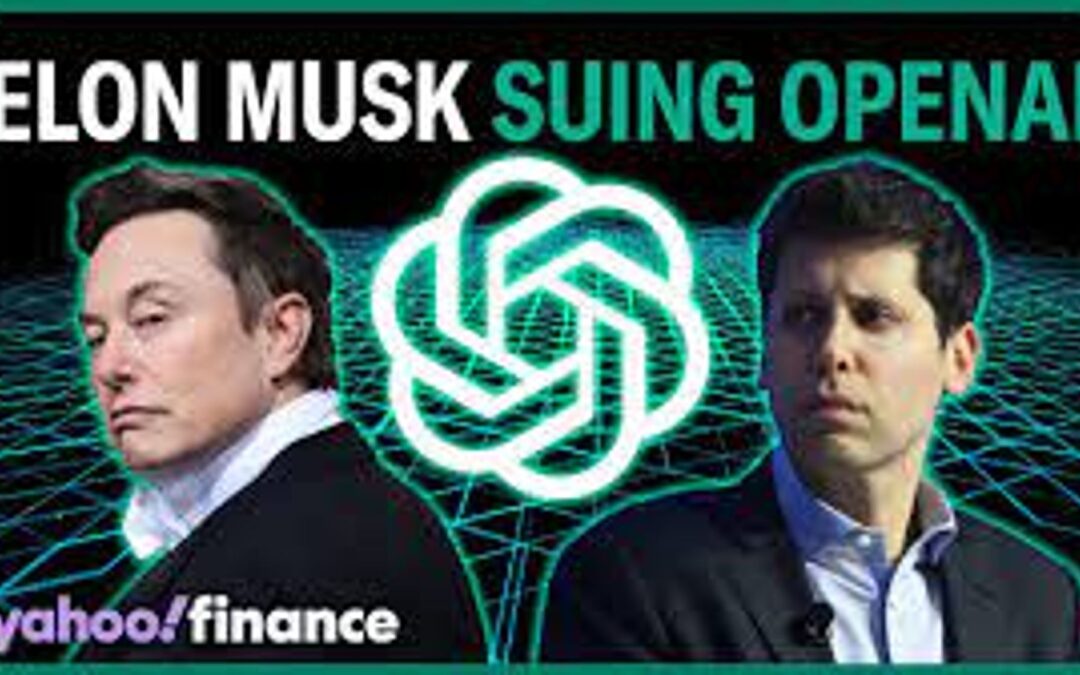The recent lawsuit filed by Elon Musk against OpenAI has sent shockwaves through the AI industry, raising essential questions about the future of AI development and deployment. As product marketers tasked with positioning and promoting AI offerings, it’s crucial to understand the implications of this development and adapt our strategies to navigate this new landscape.
In the lawsuit, Elon Musk, the co-founder of OpenAI, alleges that the company has strayed from its original mission of developing AI technologies openly and transparently. Musk claims that OpenAI has misused resources and infringed upon intellectual property rights in the pursuit of rapid growth and commercial success. He also raises concerns about the company’s alleged lack of transparency and its potential to cause harm if its AI technologies are not developed and deployed responsibly. The lawsuit seeks to hold OpenAI accountable for these alleged actions and to ensure that the company adheres to its original principles of openness and responsible AI development.
At its core, the lawsuit highlights the growing tension between the pursuit of rapid AI innovation and the need for responsible, ethical development practices. Musk’s allegations against OpenAI, including claims of intellectual property infringement and misuse of resources, highlight the high stakes in the race to bring cutting-edge AI technologies to market.
For AI product marketers, this development presents both challenges and opportunities. On one hand, the lawsuit may create uncertainty and concerns among potential customers. This requires us to adapt our messaging and value propositions to address these issues head-on. We may need to double down on emphasizing the responsible, transparent, and customer-centric nature of our AI offerings while also highlighting our commitment to ethical development practices.
On the other hand, the lawsuit also presents an opportunity for AI companies and product marketers to establish thought leadership and foster industry collaboration around these critical issues. By proactively addressing AI development’s ethical and regulatory implications, we can contribute to the broader conversation and help positively shape the industry’s future.
From a product strategy perspective, the lawsuit may also influence AI companies’ roadmaps and innovation priorities. As product marketers, we should work closely with our product management and engineering teams to ensure our offerings remain competitive and aligned with shifting market demands and customer expectations. This may require a greater focus on transparency, explainability, and accountability in our AI products and services.
As AI product marketers, we must be adaptable and proactive in the face of the challenges and opportunities presented by the Elon Musk/OpenAI lawsuit. This means closely monitoring the case’s development and its potential impact on customer sentiment and market demand.
We should be prepared to adjust our messaging and value propositions as needed, emphasizing our commitment to responsible AI development and addressing any concerns or objections head-on. Proactive communication with both internal teams and external stakeholders will be critical, as will a willingness to collaborate with others in the industry to establish best practices and standards for ethical AI development.
By staying agile and focused on the needs of our customers and society, we can navigate this complex landscape and continue to drive innovation and growth in the AI market.
Looking ahead, the Elon Musk/OpenAI lawsuit is just the tip of the iceberg when it comes to the complex challenges and opportunities facing the AI industry. As product marketers, we must remain vigilant and adaptable, staying informed about the latest developments and proactively addressing our customers’ concerns and needs.
By embracing a proactive, customer-centric approach to AI product marketing, we can help our organizations navigate this evolving landscape and drive responsible, innovative solutions that benefit our customers and society. The Elon Musk/OpenAI lawsuit may be a turning point for the industry. Still, it also represents an opportunity to lead the way in shaping the future of AI for the better.








